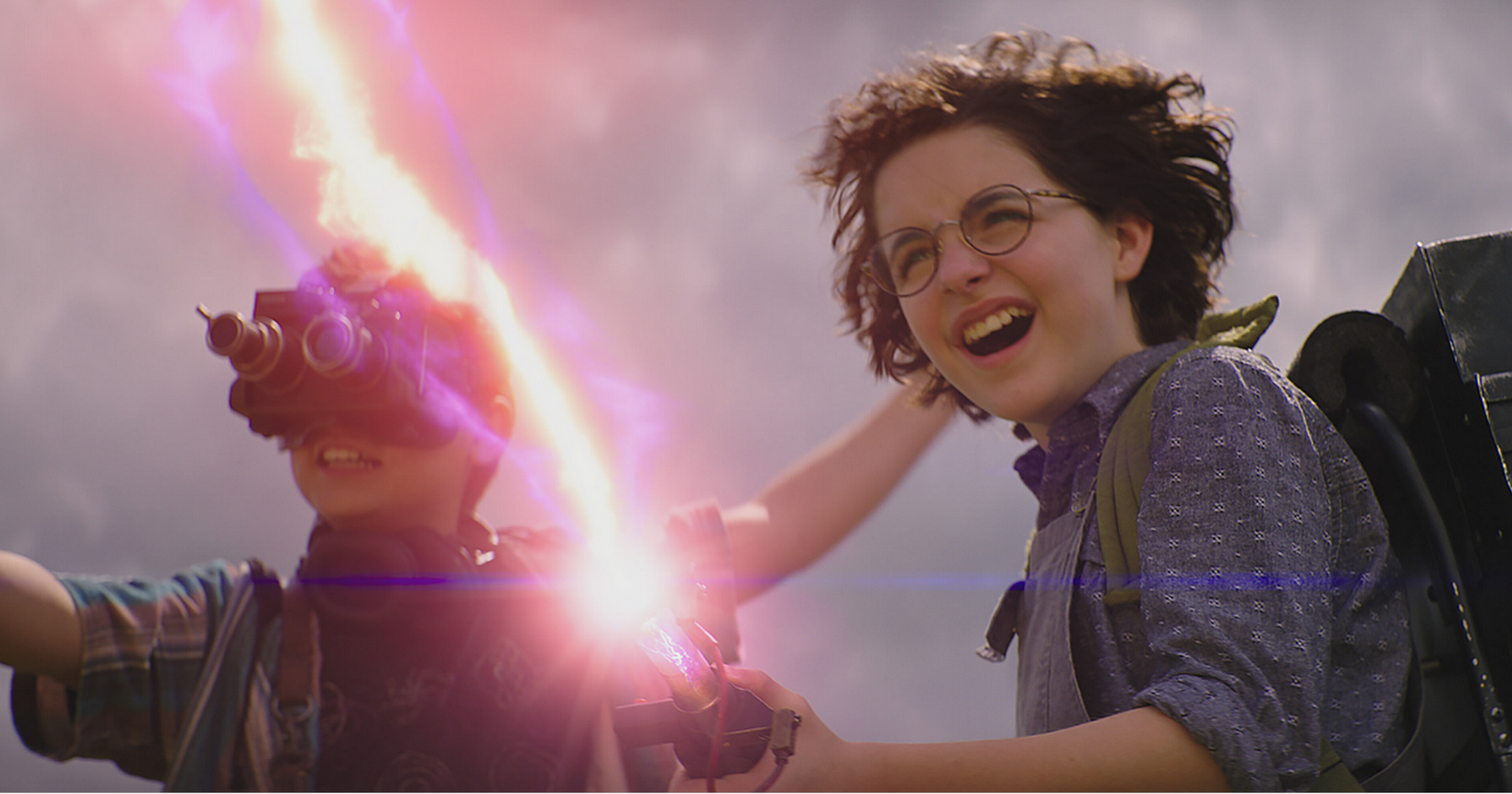
Perhaps the best way to describe the dreary retread of Ghostbusters: Afterlife is to reference the film’s only eccentric character. Paul Rudd plays Chad Grooberson, a sub-standard teacher and big Ghostbusters fan. He exists in a world where the Ghostbusters are now considered so old and out of the game that kids don’t know about the shlubby ghost-catchers. Chad’s dream comes true when discovering his sleepy town of Summerville is home to Ghostbusters technology of traps and proton packs. When finding this retro tech, however, he has little more than a mild gush of “whoa.”
This is more or less the approach to Afterlife, a Ghostbusters film that banks heavily on nostalgia. Nostalgia for the musical score. Nostalgia for the actors. Nostalgia for Ecto-1 and proton packs. Nostalgia for Gozer. Nostalgia for Stay-Puft. It is, as the director has stated in his own words, the ultimate Easter egg hunt.
The nostalgia has to pull double duty considering the mostly dead nature of trying to revive the franchise into more of a kid-friendly adventure picture. There’s a decent premise where one Ghostbuster has fled to the small town of Summerville for an unknown reason. When he ends up dead, his daughter Callie (Carrie Coon) and her two teen kids of Phoebe (Mckenna Grace) and Trevor (Finn Wolfhard) venture off to see if he left them anything behind. There’s no money in his dirt farm but there is plenty of supernatural devices present. There’s also a looming threat of ghosts and demons that are threatening to destroy the world. Perhaps the genius Phoebe and the plucky loser Trevor can save Summerville from becoming the epicenter of Armageddon.
The chemistry of this picture just feels dead, where characters spend so much time trying to crack jokes they forget to have any compelling personalities. Phoebe is established as an awkward geek who has trouble making friends and constantly tries to crack jokes, nearly all of them receiving dead stares. That awkwardness feels more implied than shown considering how forcefully she is thrust into a relationship with the dorky podcaster simply titled Podcast and easily discovers the ghostly secrets of her grandfather with little astonishment.
Trevor is more believable as the awkward teenager who keeps striking out with a girl he fancies but his loser angle is so briefly explored that the many times he fails almost come off as cruel for how little we get to like him. There’s barely even a romance between Callie and Chad that their relationship almost feels like a necessity so that their possession and copulation doesn’t feel as weird.
The joy of the picture feels almost entirely dependent on how much stuff you can recognize. A Twinkie shows up in the Ecto-1 but there’s no joke about it. There’s no playful observation or witty punchline to the snack once used to describe a ghastly threat to New York. It’s just there are I can only assume the die-hard fans will be made to leap out of their seat Rick Dalton style and point at the screen in astonishment. There are so many other moments such as this, to the point where the climax replicates the first film with all the familiar lines.
This feels less like a film and more like a game. Do you remember Slimer? Do you remember the crossing of the streams? Do you remember the conversation with Gozer about being a god? If you said yes to these and other questions, you’ll receive one of two prizes: satisfying satiation as a fan who commits to Easter Egg hunts or a disappointment for being served up nothing new by the Ghostbusters franchise.
While I won’t reveal the many surprises of cameos, I will describe them as tacky. There are a lot of actors brought back from the original film and their placement feels more like something for a YouTube skit than a sequel. And if you thought such a nostalgic film centered around fan-approval is above recreating actors in CGI, you’d be wrong, leading to one of the most hollow climaxes where the heartfelt nature misses the mark by a mile.
Ghostbusters: Afterlife is not so much a torch-passing picture as it is a junior high play of a fan-fiction sequel. So little of this film stands on its own that it is thoroughly disheartening to see such an uninspired use of the franchise. It’s not just lacking humor but an original voice to make that action-adventure formula more of its own film rather than just a tired retread. For as much as I didn’t like the humor of 2016’s Ghostbusters, at least that film tried something a little different. Afterlife can’t even stand on its own two feet, relying on the crutches of the past to carry a film to the fans that will do little more than pleasing the most surface-level geeky elements.

 “Deadpool & Wolverine” Review
“Deadpool & Wolverine” Review  “The Boys: Season Four” Review
“The Boys: Season Four” Review  “The American Society of Magical Negroes” Review
“The American Society of Magical Negroes” Review  “Twisters” Review
“Twisters” Review  “Sausage Party: Foodtopia” Review
“Sausage Party: Foodtopia” Review  “Robot Dreams” Review
“Robot Dreams” Review  “Godzilla x Kong: The New Empire” Review
“Godzilla x Kong: The New Empire” Review  “Slave Play. Not a Movie. A Play.” Review
“Slave Play. Not a Movie. A Play.” Review 


